8 Heartfelt and Powerful Children’s Books About Negative Emotions
Last month, I dug into the topic of why many children’s books don’t feature negative emotions. Now that I’ve begun learning about this deficit in children’s books, I’m noticing it more often. I even surveyed my picture book collection at home, and I came back with some interesting findings. My son and I have a total of 151 children’s books. The majority of our collection includes books I’ve kept from my childhood, or books we’ve received as gifts, though I do supplement these with frequent library trips. Amongst the 151 picture books we have at home, can you guess how many are about negative emotions?
Seven books.
That’s 4.6% of our picture book collection, or 5% if I’m being generous on the round up. I’ve included a picture of those seven books below. Of course, my collection is in no way representative of the actual percentage of children’s books that feature negative emotions. However, I find it noteworthy that my collection only has 5%. How many do you have at home? Or, if you’re library regular like me, how many do you notice in the children’s section of the library?
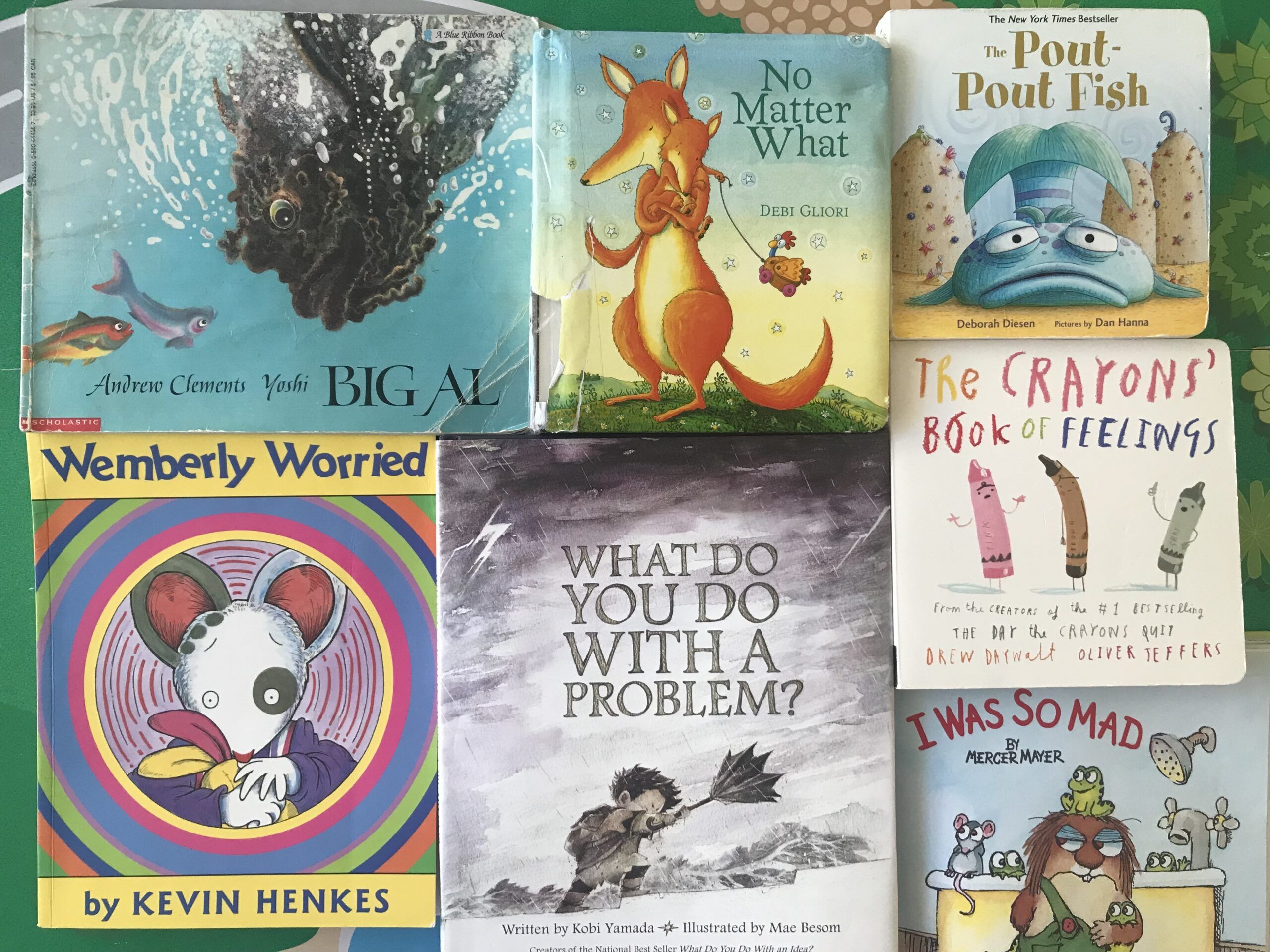
Children’s books about negative emotions are important because they help support children’s emotional health. In a blog post about helping children manage their anger, clinical psychologist Dr. Jazmine McCoy writes, “Children learn to regulate their bodies and their feelings through us. We have to help them – it’s called co-regulate – before they can learn how to regulate on their own. A lot of this process needs to be walked through.”
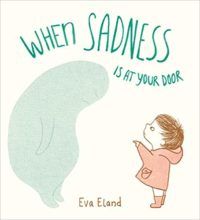
Eva Eland, author of the children’s book When Sadness Is At Your Door, addresses the internal conflict some adults may feel when discussing negative emotions with children. In a 2019 BookTrust article she acknowledges, “I understand that it might not be easy for adults to open up and show a more vulnerable side, especially when they have not learned very well to deal with their own emotions in their own childhood. Or how difficult it can be to let go of the wish to protect children from pain and negative emotions…But strong emotions like sadness, disappointment and fear will always be a part of life, and I believe the best way to protect our children from too much pain is to give them the opportunities to learn to deal with them, in a way that suits them, and at a pace they are comfortable with.”
Like Eland points out, negative emotions are a part of life. Children’s books about negative emotions can help caregivers find the words to discuss big feelings with children. They also provide children with a sense of validation for their feelings and tools for coping with their emotions safely.
However, this comes with the caveat that not all children’s books about negative emotions are helpful for emotional education. For example, you may have noticed the popular children’s book The Pout Pout Fish by Deborah Diesen in the picture above. Rather than normalize the “pout pout” or negative feelings the fish has, this book’s message unfortunately came across to me as: big feelings bother those around you. Take this quote for example, “Your hulky-bulky sulking is an unattractive trait!” (The Pout Pout Fish, p. 16). Books about negative emotions that instead offer empathy, support, and coping strategies are the ones that I find to be most impactful.
In the list below, I’ve included children’s books about negative emotions that I believe nurture healthy emotional education. I hope they help you and the children you know learn how to navigate big feelings.
Children’s Books About Negative Emotions
A Variety of Negative Feelings
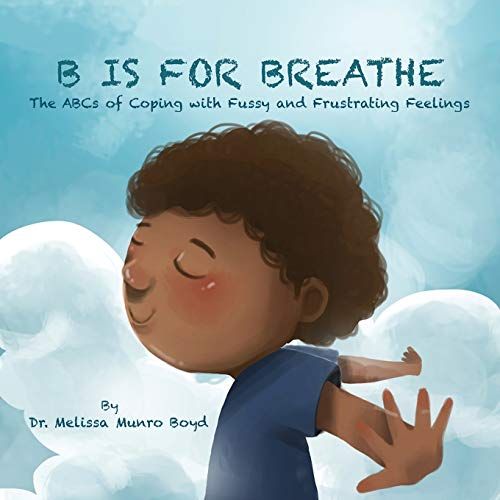
B is for Breathe: The ABCs of Coping with Fussy and Frustrating Feelings by Melissa Munro Boyd
Written by clinical psychologist Dr. Melissa Munro Boyd, this powerful picture book touches on each letter of the alphabet as it highlights strategies for managing big feelings, including deep breathing, muscle relaxation, and more. In a guest post on the Black Children’s Books and Authors blog, Dr. Boyd shares, “The goal of writing B is for Breathe was to help children identify skills that could help them cope with stressors in a healthy way and begin opening up the conversation about mental health, self-care, and resiliency. “
Sadness & Grief
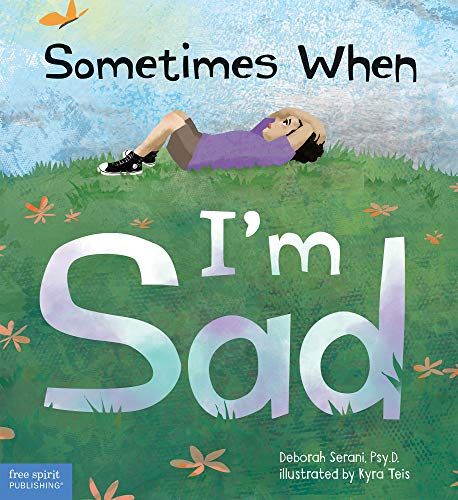
Sometimes When I’m Sad by Dr. Deborah Serani, illustrated by Kyra Teis
Psychologist Dr. Deborah Serani wrote this poignant children’s book about sadness. In this helpful resource, Dr. Serani thoughtfully and gently explores feelings of sadness, as well as ways people can cope with feeling sad. At the end of the book, Dr. Serani also explains the important distinctions between sadness and depression.
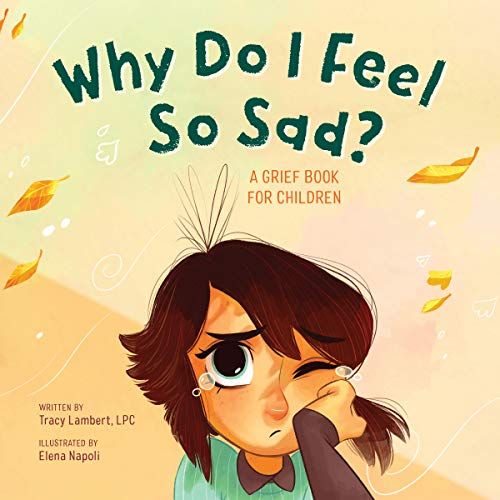
Why Do I Feel So Sad? A Grief Book for Children by Tracey Lambert, illustrated by Elena Napoli
Licensed professional counselor Tracey Lambert explores sadness and grief in this heartfelt and moving children’s book. Lambert also normalizes the many forms of grief that surface from loss and changes in life such as death, divorce, moving, and switching schools.
Anger
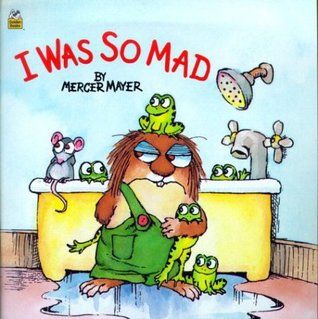
I Was So Mad by Mercer Mayer
Mercer Mayer’s Little Critter series is a longstanding favorite of mine, and my son loves them too. With humor and relatable scenarios, Mayer normalizes feeling angry. I always gain an extra does of empathy and understanding when I read this one with him. I think it helps my child feel less alone about getting angry sometimes, and it helps me feel less alone as a parent coping with my child’s anger.
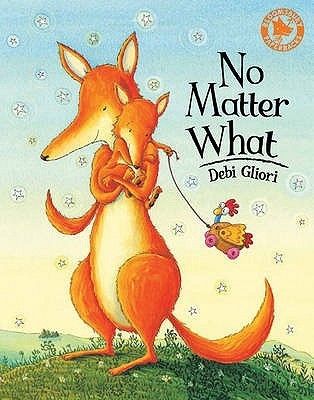
No Matter What by Debi Gliori
This sweet book by Debi Gliori is another one of my son’s favorites. In the beginning of the book, “Small was feeling grim and grumpy.” When Large asks Small what’s wrong, Small explains their feelings, then adds, “and I don’t think you love me at all.” Large goes on to reassure Small that no matter how big their feelings are, Large loves them no matter what. I think this is an important message to reinforce with your little ones after they’ve had a big feeling moment.
Anxiety & Worry
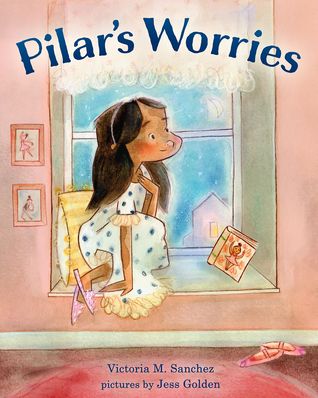
Pilar’s Worries by Victoria M. Sanchez, illustrated by Jess Golden
While Pilar loves to dance, she worries about the auditions for the upcoming ballet. Despite her whole body feeling nervous about it, Pilar uses gentle techniques to calm her body and persevere as she pursues her passion for dancing. This heartwarming story about anxiety makes for an empowering read for any young worrier in your life.
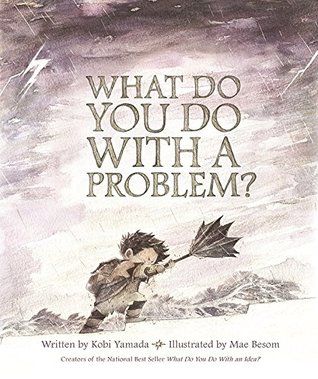
What Do You Do With A Problem? By Kobi Yamada, illustrated by Mae Besom
With gorgeous and moving illustrations by Mae Besom, this book by Kobi Yamada takes a closer look at the worry that can feel consuming when you’re faced with a problem. This book helps validate these anxious feelings and shares a plan of action on how to face a problem, as well as a hopeful reflection on the nature of problems.
Loneliness & Fear
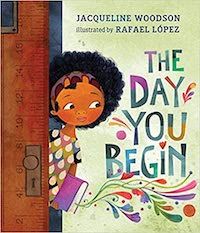
The Day You Begin by Jacqueline Woodson, illustrated by Rafael López
This lyrical and poetic picture book by National Book Award winning author Jacqueline Woodsen explores how lonely it can be for someone who feels different than everyone else. Woodsen shares an uplifting message about how even though it can feel scary at first, finding courage to share your story can help you begin building life-changing connections.
While I chose books about sadness, grief, anger, worry, fear, and loneliness, this list is not all-encompassing, and there are many other negative emotions out there. What books have you found helpful in addressing negative emotions with children? It is my hope that this list will encourage more conversation about negative emotions in the world of children’s books.
Reading and talking about negative emotions has made an incredible impact on my son and me. I hope these books make a difference for you and the little ones in your life too.

إرسال تعليق
0 تعليقات